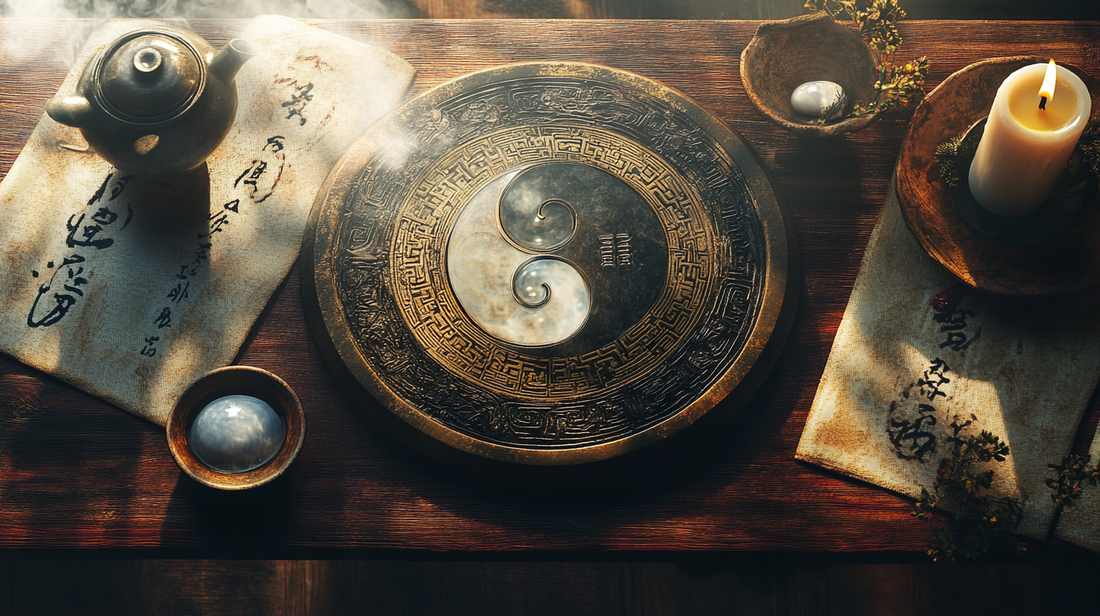
Yin, Yang, and Qi: How Energy Balance Affects Your Health
Share
Introduction
In Traditional Chinese Medicine (TCM), your health is not simply the absence of disease. It's the dynamic balance of forces within your body. Central to this system are three key concepts: Yin, Yang, and Qi. These aren't just abstract ideas; they shape how practitioners understand your symptoms, diagnose your condition, and guide your healing.
In this blog, we’ll explore what Yin, Yang, and Qi mean, how they work together, and how imbalances can lead to real health issues like fatigue, pain, or emotional stress. We'll also look at what modern research says and how TCM therapies help restore harmony.
What Are Yin, Yang, and Qi?
Yin and Yang: The Foundation of Balance
Yin and Yang are opposing but interconnected forces. Think of day and night, rest and activity, cold and heat. According to TCM, your body contains both Yin and Yang. When they are in harmony, you feel balanced and well. When they fall out of sync, problems begin.
- Yin is associated with coolness, stillness, moisture, and nourishment.
- Yang is linked to warmth, activity, dryness, and stimulation.
Common symptoms of imbalance:
- Excess Yang: Inflammation, irritability, insomnia, dryness
- Excess Yin: Fatigue, cold limbs, poor digestion, fluid retention
Qi: The Vital Energy
Qi (pronounced "chee") is the life force or energy that flows through the body. It powers your organs, protects against illness, and fuels daily function.
Types of Qi:
- Yuan Qi (Original Qi): Inherited at birth, stored in the kidneys
- Zong Qi (Gathering Qi): Formed from air and food
- Wei Qi (Defensive Qi): Protects you from external pathogens
Qi flows through meridians—invisible pathways that link organs and systems. Blocked or weak Qi is often at the root of health concerns in TCM.
What Happens When Qi, Yin, and Yang Are Out of Balance?
TCM practitioners diagnose patterns of imbalance rather than isolated diseases. Here are a few common examples:
- Qi Deficiency: Low energy, weak voice, poor appetite, frequent illness
- Qi Stagnation: Stress, mood swings, menstrual pain, tension
- Yin Deficiency: Night sweats, dry mouth, insomnia
- Yang Deficiency: Cold hands and feet, bloating, fatigue
Many chronic conditions—like IBS, fibromyalgia, or anxiety—are seen as patterns involving multiple imbalances in Qi, Yin, and Yang.
How TCM Restores Energy Balance
Acupuncture
Stimulates specific points on the body to move Qi, balance Yin and Yang, and relieve blockages.
Evidence: The NIH and Cochrane Library support acupuncture’s role in reducing pain, anxiety, and inflammation.
Herbal Medicine
Customised formulas balance internal patterns. For example:
- Dang Gui for blood and Yin support
- Huang Qi for Qi boosting
- Rou Gui for warming Yang
Dietary Therapy
- Yin-supporting foods: Pears, tofu, seaweed, barley
- Yang-supporting foods: Ginger, lamb, cinnamon, garlic
- Qi-boosting foods: Oats, sweet potato, millet
- Movement Practices
-
Qigong and Tai Chi: Help move stagnant Qi, calm the mind, and balance Yin-Yang through breath and gentle motion
Signs You Might Have an Imbalance
TCM doesn’t require a diagnosis to begin treatment. Common signs you may benefit from a Yin-Yang-Qi assessment include:
- Chronic stress or burnout
- Poor sleep or restless nights
- Frequent colds or low immunity
- Digestive discomfort
- Low mood or emotional instability
- Menstrual irregularities or pain
A licensed TCM practitioner can assess your pulse, tongue, and symptoms to create a personalised plan.
Western Medicine vs. TCM: Different Lenses, Same Goals
Western medicine may identify conditions like fatigue, hormone imbalance, or anxiety. TCM may describe these as Qi deficiency, Yin deficiency, or Liver Qi stagnation. While the language differs, the intent is the same: help the body return to a state of balance.
More patients are choosing an integrative approach, combining both systems for faster, more sustainable results.
Academic References
- Li, H. et al. (2015). Acupuncture and Chinese Medicine in Chronic Fatigue Syndrome. Journal of Traditional Chinese Medicine, 35(3), 256–260.
- Cochrane Library (2022). Acupuncture for Chronic Pain: A Review of the Evidence.
- National Center for Complementary and Integrative Health (NCCIH). (2021). Traditional Chinese Medicine: What You Need to Know.
Final Thoughts
Yin, Yang, and Qi are not just old ideas—they are living tools that help explain why your body feels the way it does. When these energies fall out of balance, symptoms appear. But with the right support, your body can shift back into harmony.
